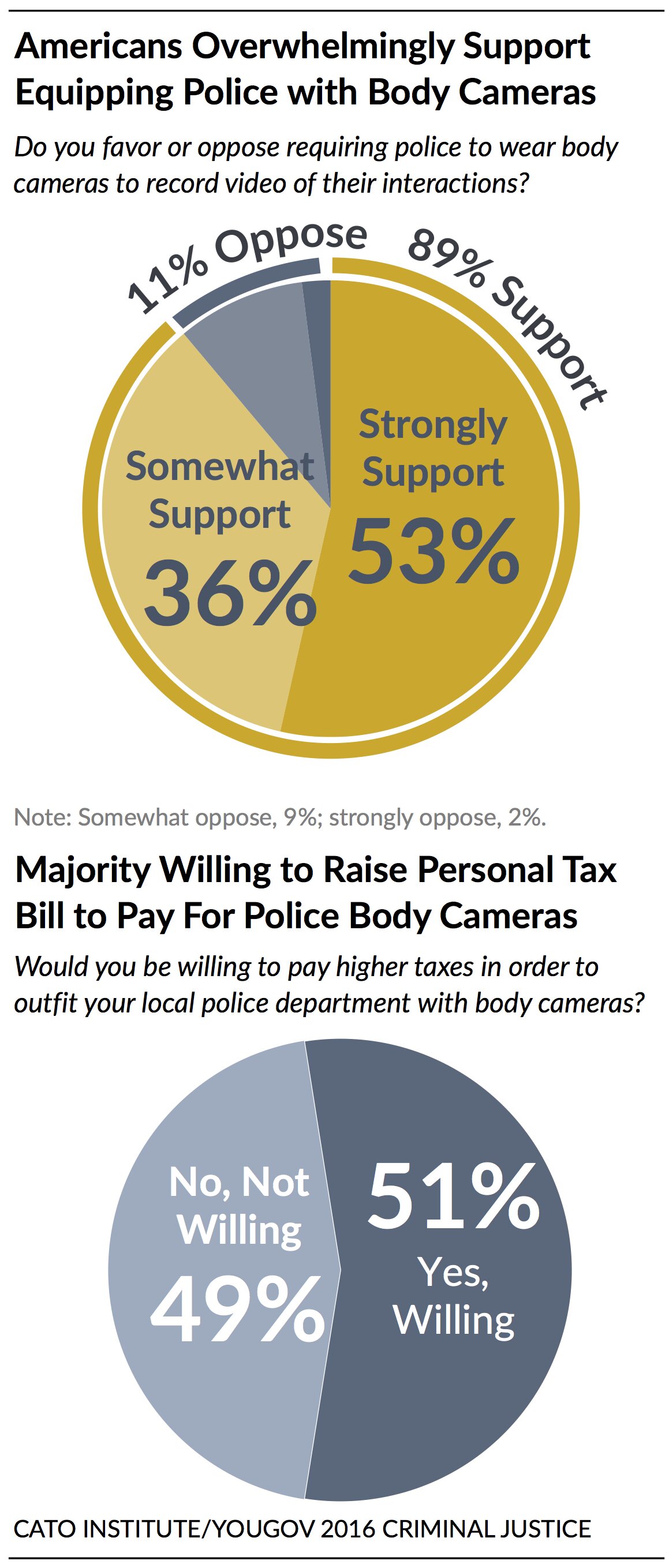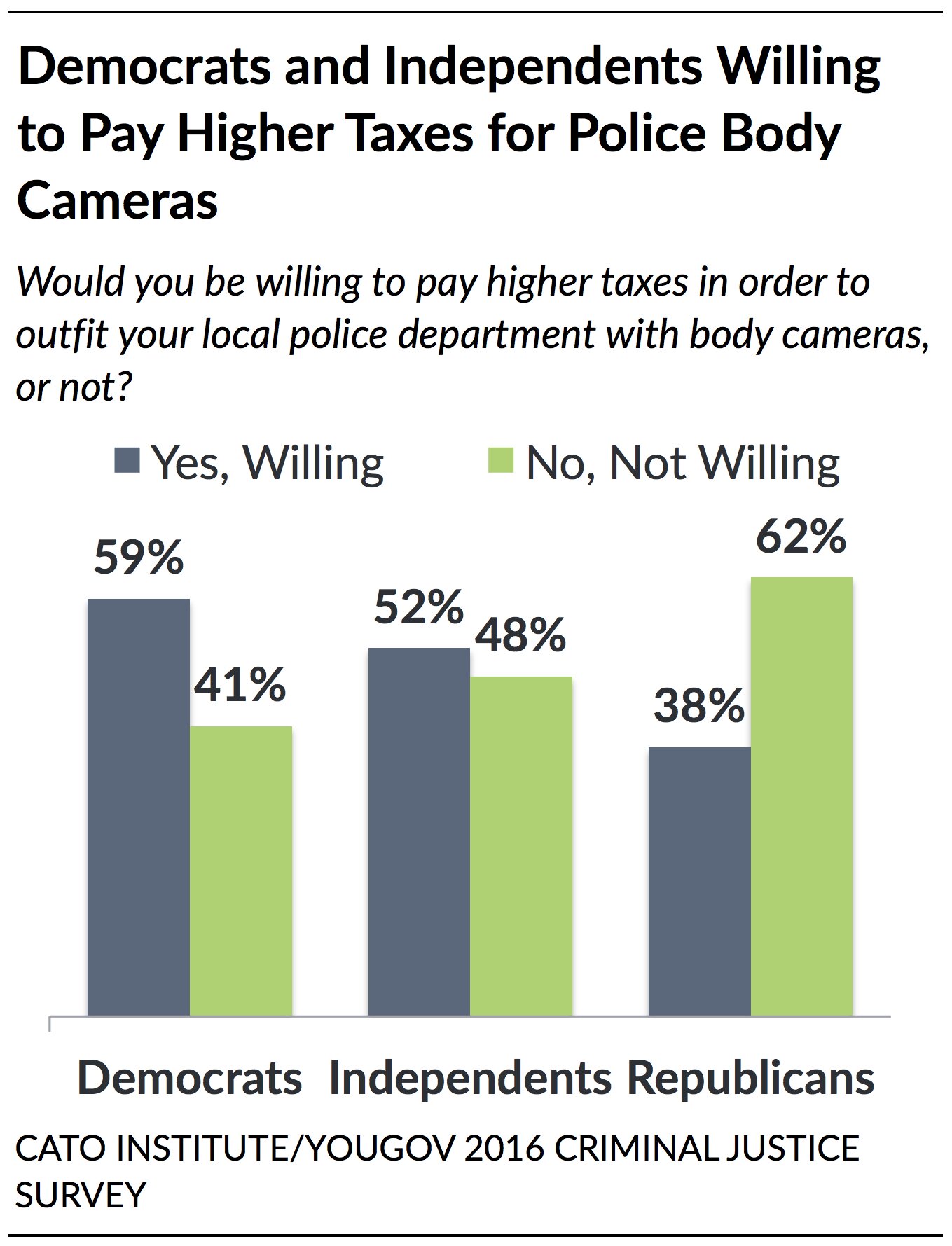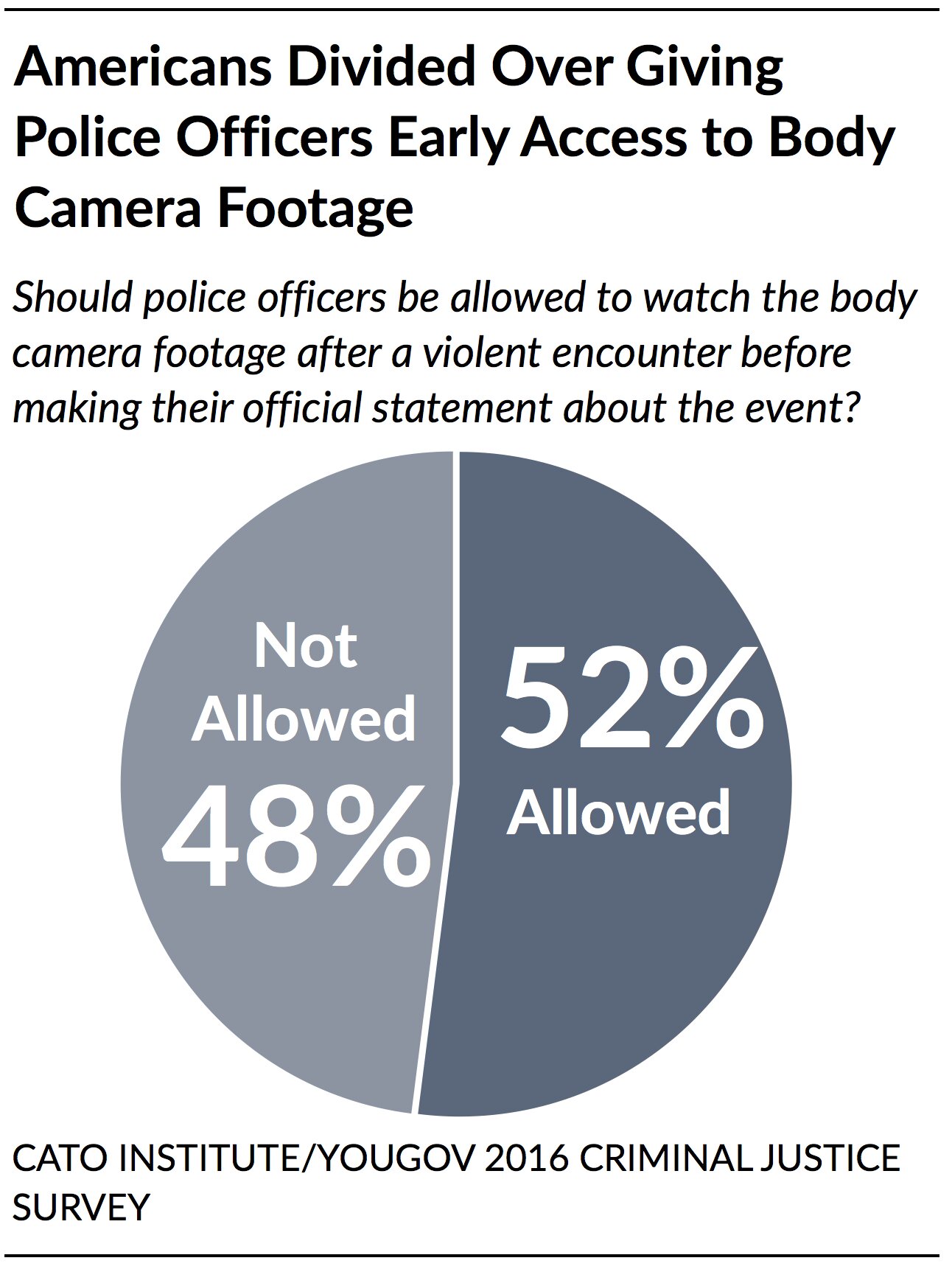Almost all Americans (89%) support requiring police officers to wear body cameras to record their on-duty interactions: 53% "strongly support" and 35% "somewhat support" this proposal. A paltry 11% oppose police wearing body cameras. Support extends across demographic and political groups. In an era of hyper-partisanship, police body cameras attract bipartisan approval.
Many police officers have interpreted public support for body cameras as public censure of the police.66 However, Americans who have a favorable opinion of the police are as likely as those with unfavorable views to support police body cameras.
Moreover, most Americans (74%) believe such a policy will equally protect both the police officers that wear them and the citizens who interact with the police. Few expect cameras to exclusively protect citizens (15%) or police officers (11%).
Paying for Body Cameras Raising taxes to pay for police body cameras enjoys less support. A slim majority (51%) of Americans say they would pay higher taxes to outfit their local police department with body cameras, while 49% would not.
>Politics, rather than demographics, primarily drive attitudes toward tax increases for body cameras. Fifty-nine percent (59%) of Democrats and 52% of independents say they'd pay higher taxes for body cameras, while a majority (62%) of Republicans say they would not.
Different groups favor body cameras for different reasons. Those who trust the police may believe cameras protect officers from frivolous lawsuits or encourage citizens to behave better. Those distrustful of the police may believe cameras improve officer behavior and accountability.
Access to Body Camera Footage Although most Americans agree police should wear body cameras, only a slim majority (52%) say police officers should be allowed to watch body camera footage before making their official statements about violent encounters, while 48% oppose.
A majority (58%) of those with a favorable opinion of police in general say officers should be allowed to watch the video footage before making a statement. Of those with an unfavorable view, a larger majority (71%) say officers should be denied access to the footage before giving their official statement.
There are stark racial and political divisions as well. A majority of whites (57%), independents (52%), and Republicans (63%) say police should be allowed early access to video footage. In contrast, majorities of blacks (69%), Hispanics (56%), and Democrats (58%) oppose early access.
Confidence in the police matters here. Those with greater confidence trust officers not to use their early access to change their stories or mislead investigators. Those who lack confidence may think officers will use early access to absolve themselves from blame.
Notes:
66 John Ortiz Smykla et al., "Police Body-Worn Cameras: Perceptions of Law Enforcement Leadership." American Journal of Criminal Justice 41 (2016): 424-443.


